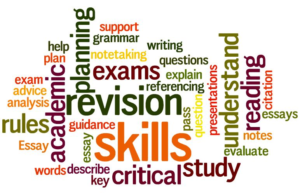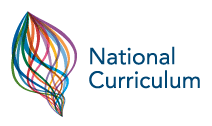 All students follow GCSEs in RE, English Language, English Literature, Maths and Science (currently all students follow Core Science before specialising in either the Triple Science Pathway – Biology, Chemistry and Physics or the Combined Science Pathway.
All students follow GCSEs in RE, English Language, English Literature, Maths and Science (currently all students follow Core Science before specialising in either the Triple Science Pathway – Biology, Chemistry and Physics or the Combined Science Pathway.
All students also follow one Modern Foreign Language (either Spanish or French) and a humanity based subject (either Geography or History).
All students can then choose ONE other subject at GCSE from: Art, Catering, Computing, Drama, Music, PE or Resistant Materials.
We recognise that a Modern Foreign Language may not be for everybody and therefore there will be opportunity for some students to choose a OCR Cambridge National Level 1 and Level 2 course.
For both KS3 and KS4 careers information advice and guidance and PSHE are delivered via our extended tutor time allowing our learners to make informed choices about their futures.
We believe that it is this blend of enriched experiences that enables our learners to ‘aspire to be more, not to have more’ and to be able to develop their spiritual, moral, social and academic self.
Assessment is integral to the success of our students’ learning process and therefore assessing their work is fully integrated within each subject’s schemes of work and teachers’ routine lesson planning.
It should have a positive impact, both on students’ attitudes and motivation and also upon teachers’ future planning and to this end the monitoring, marking and recording of student progress is the key to successful outcomes.

Our assessment practice meets the statutory requirements of the National Curriculum and exam board specifications for Key Stage 4 qualifications.
Our parents and carers receive updates on student progression, the data provided indicates for the student, parent and staff clear information in relation to current levels/grades and end of key stage targets based upon FFT 20 measures which are published and refined each year. These measures are based upon students’ prior attainment and give an indication of the likely progress that can be expected
Naturally, assessment data must provide students with feedback on what they need to do to improve their work and their KS3/GCSE grades.
Our practice incorporates a number of strategies which can be summarised in the following way:
Teaching should be planned to incorporate varied and differentiated assessment tasks when and where appropriate. In some subjects such as Maths, Science and English where students are set, the work set will be matched to ability with adjustments to groupings occurring at strategic points as determined by the Curriculum Leader.
In our day to day assessments of students’ work, ’assessment for learning’ strategies are incorporated whenever possible – these will include: extended questioning techniques, paired-talk, hands-up and hands-down activities, mini-plenary, student-led plenary, peer and self-assessment activities. These strategies allow teachers to gauge progress in a formative rather than summative manner and to plan accordingly for the ‘next steps in the learning’ sequence for individuals, groups and/or classes.
Students are central to the process of assessment and so the criterion on which they are assessed is shared with them, understood by them and forms the basis of future target setting for pieces of work.
Assessments are scheduled to support accurate, termly progress checks/reviews that reflect the overall performance of a student in each subject area and which in turn informs data captures.
These data captures typically occur 3 times a year and follow this pattern of monitoring and timescale:
With the advent of Linear GCSEs, the former pattern of modular assessment is now obsolete and therefore students and parents can expect there to be increasingly more ‘subject and keyword or key concept tests’ so that students are preparing for a pattern of assessment that will require them to retain much more knowledge and information for their final examinations in the summer of year 11.
A programme of formal tests and assessments is published in the school calendar detailing when each year group has end of term or year exams.